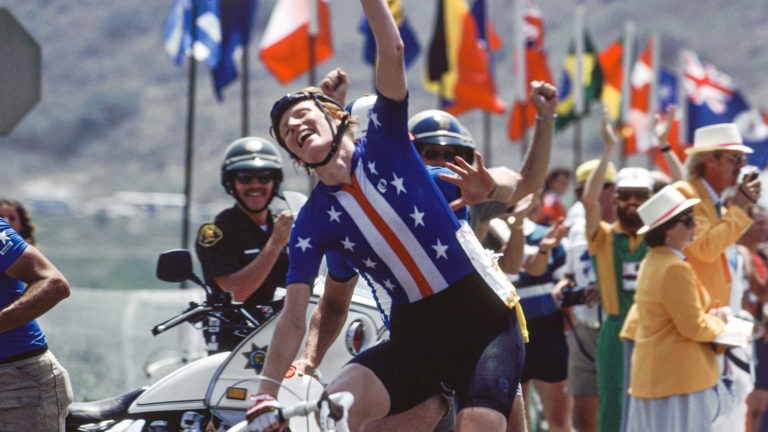
Connie Carpenter-Phinney
After an ankle injury ended her speedskating career, Connie Carpenter-Phinney took up cycling and won a gold medal in the Olympic women’s cycling debut event at the Los Angeles 1984 Olympic Games.
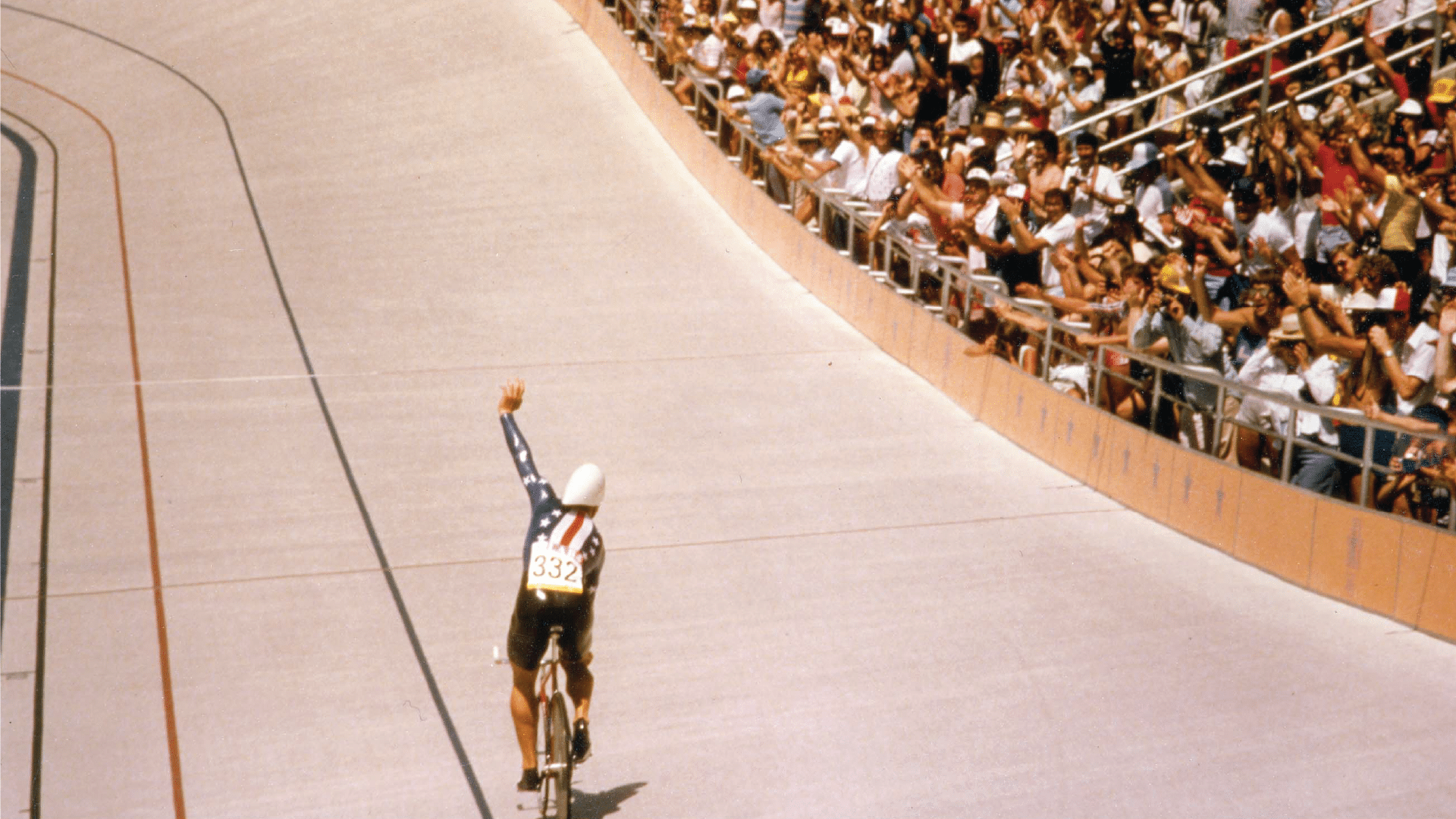
From the Athens 1896 Olympic Games, where Olympic sports cycling was first introduced, to the thrilling Paralympic cycling events today, cycling and Para-cycling have remained some of the most dynamic sports in the Olympic and Paralympic movements.
The United States Olympic & Paralympic Museum honors the U.S. Olympic Cycling team and Team USA cycling and Para-cycling athletes who competed with strength, strategy, and speed across both the Olympic and Paralympic Games.
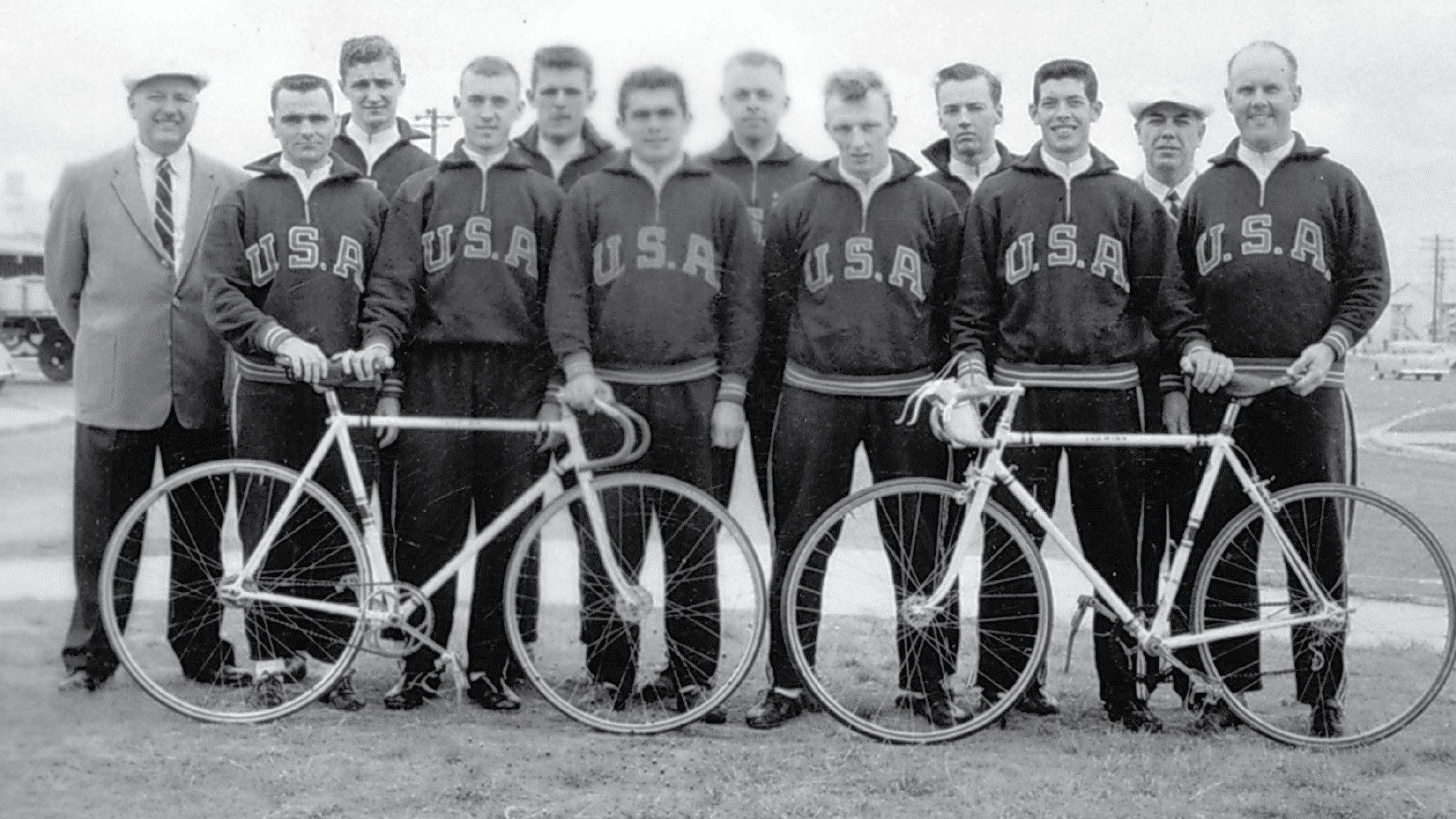
Olympic cycling showcases road cycling, track cycling, BMX racing, and BMX freestyle. Each event tests a unique set of skills—from high-speed sprints to grueling endurance.
At the St. Louis 1904 Olympic Games, American cyclists were the only ones to compete. Marcus Hurley won four of seven cycling events and placed third in one event.
In the 1970s, a group of mountain bikes helped gain more interest in cycling, and U.S. Mountain biking was first introduced in the Atlanta 1996 Olympic Games. Also in the 1970s, BMX racing became a popular sport in Southern California and was added to the Olympic program in 2008. BMX racers performed tricks in the 1970s and 1980s, and BMX freestyle was added to the Olympic program in 2020.
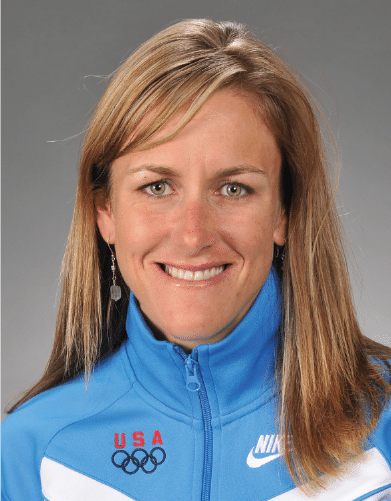
Famous Olympic cyclist Kristin Armstrong brought home the only gold medal from the U.S. cycling team during the women’s time trial at the Beijing 2008 Olympic Games. Armstrong then retired only to return to the London 2012 Olympic Games, where her victory secured her spot as the oldest Olympic women’s cycling medalist ever.
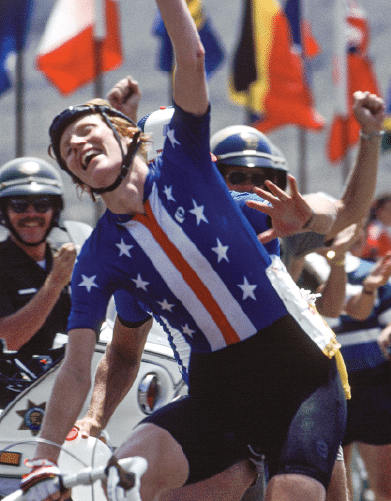
Connie Carpenter-Phinney won the first-ever Olympic women’s road race at the 1984 Los Angeles Olympic Games, making her a pioneer in women’s cycling and a role model for future generations.
Greg LeMond: The first American to win the Tour de France.
Marty Nothstein: Known as “The Blade,” Nothstein is one of the most successful U.S. track cyclists, winning gold in the sprint event in Sydney and silver in Atlanta.
Alexi Grewal: Grewal’s exciting sprint finish in Los Angeles earned him the gold in the men’s road race—an iconic Olympic moment and a major milestone for U.S. men’s cycling.
More recently, names like Taylor Phinney and Ashton Lambie have paved the way for the U.S. Olympic Cycling Team.
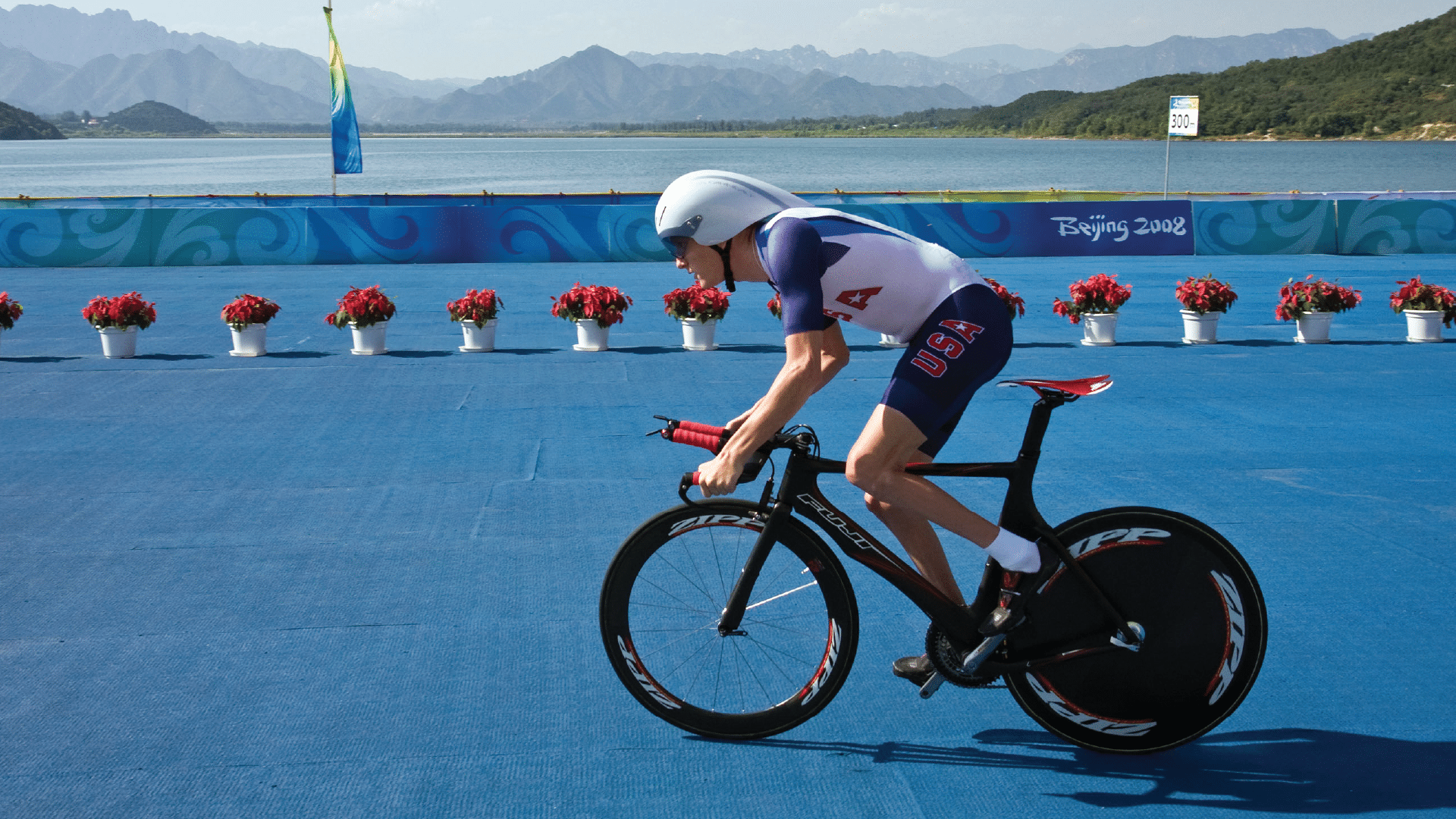
Para-cycling was first introduced at the Paralympics in the 1984 Games in New York. Only road events for athletes with cerebral palsy were included. At the Seoul 1988 Paralympic Games, only athletes with visual impairments competed.
At the Barcelona 1992 Olympic Games, more classes of impairment were included. In the 1996 Atlanta Games, track events were added to the Paralympic program. Paralympic cyclists compete using a range of equipment, including handcycles, tricycles, tandem bikes, and standard bicycles, depending on classification and ability.
U.S. Paralympic cyclists have made history with their performances, consistently earning medals and raising awareness for adaptive sports.
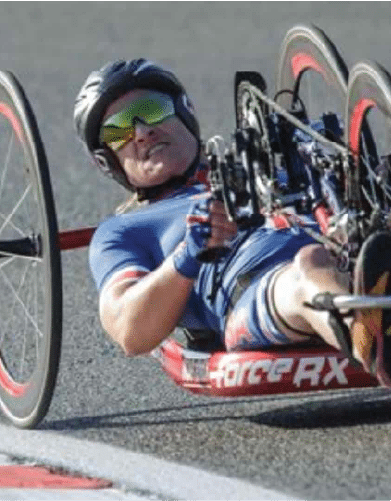
Muffy Davis: She competed at the summer and winter Paralympic Games in alpine skiing and Para-cycling, winning seven Paralympic medals, of which three were gold.
Shawn Morelli: A former U.S. Army engineer injured in Afghanistan, Morelli became one of Team USA’s most dominant para-cyclists.
Oksana Masters: This multi-sport Paralympian medaled in cycling, Nordic skiing, and rowing, showcasing an impressive range of athleticism and stamina.
Allison Jones: Competing in both Summer and Winter Paralympics, Jones has medaled in cycling and alpine skiing. She’s among the few Americans to compete in eight Paralympic Games, with multiple podium finishes in each season.
Will Groulx: A former wheelchair rugby player turned cyclist, Groulx quickly rose to prominence in Para-cycling, earning medals in back-to-back Games.
The U.S. Paralympic cycling team continues to grow, with more athletes achieving personal bests and world records every Games.
John Allis: 1993 Hall of Fame Inductee who competed in multiple Olympic Games and won the national road championship in 1974.
Mary Jane Reoch: 1994 Hall of Fame Inductee and 11-time national champion known for her excellence in both road and track cycling.
Greg LeMond: 1996 Hall of Fame Inductee achieved victory three times.
Alexi Grewal: 2004 Hall of Fame Inductee and winner of the gold medal in the men’s road race at the 1984 Los Angeles Olympics.
Sarah Hammer: 2023 Hall of Fame Inductee, a multiple-time world champion, and Olympic silver medalist
Kristin Armstrong: 2022 Hall of Fame Inductee and three-time Olympic gold medalist in the time trial event.
Muffy Davis: 2022 Hall of Fame Inductee competed in Para-alpine skiing and Para-cycling.
David Kiley: 2022 Hall of Fame Inductee who competed in Para alpine skiing, Para track and field, and wheelchair basketball.
Celebrate the legacy of these incredible athletes and explore their stories at the U.S. Olympic & Paralympic Museum. From famous Olympic cyclists to record-setting USA women’s cyclists and the entire U.S. Olympic Cycling Team, their achievements continue to inspire greatness.

After an ankle injury ended her speedskating career, Connie Carpenter-Phinney took up cycling and won a gold medal in the Olympic women’s cycling debut event at the Los Angeles 1984 Olympic Games.
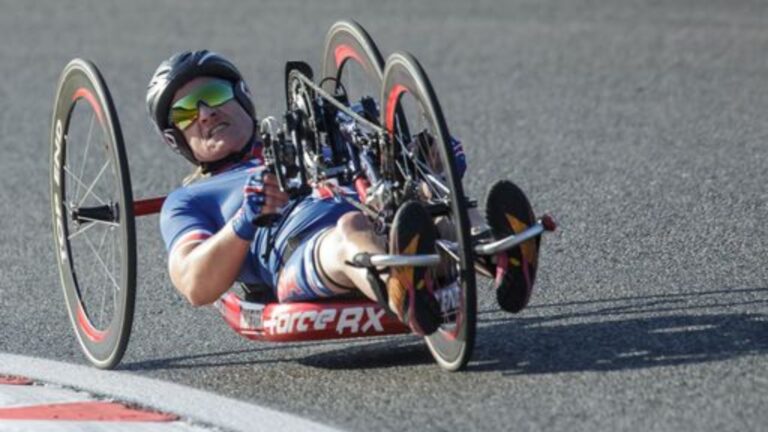
Muffy Davis competed in Paralympic alpine skiing and para cycling, winning a total of seven Paralympic medals, three of which are gold medals.